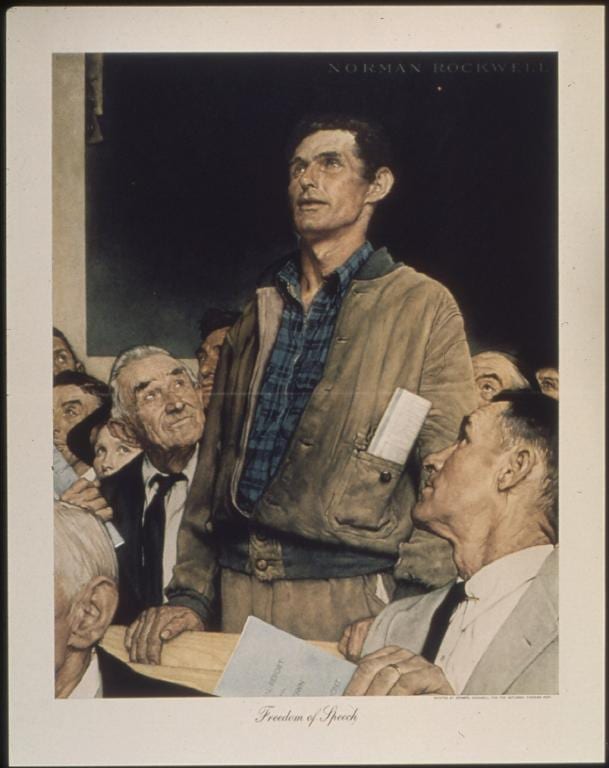
Anti-discrimination laws applied to same-sex marriage and other LGBT issues often conflict with the Constitution’s guarantee of religious liberty. But they can also conflict with the Constitution’s guarantee of freedom of speech. Not to mention other related principles, such as academic freedom and artistic freedom.
A federal appeals court has recently made an important ruling that can help sort out these issues, emphasizing that governments may neither restrict speech, nor compel citizens to express beliefs that they do not, in fact, hold.
Carl and Angel Larsen are a husband and wife videographer team. They own and operate a business in Minnesota called Telescope Media Group, which produces short films, commercials, and videos of live events. They would like to make wedding videos, but their Christian convictions would prevent them from making celebratory films of same-sex weddings. But a Minnesota anti-discrimination law would make it mandatory for them to offer their services to same-sex couples. If they refuse, they would face large fines, punitive damages, and up to 90 days in jail. The law explicitly rejects giving any kind of religious exemptions.
Since it is possible to challenge a law before being charged with violating it, the Larsens filed a “pre-enforcement” lawsuit against the state. In the meantime, they cannot make videos of any wedding, since they are unwilling to make videos of same-sex weddings. A district court threw out their lawsuit.
The Eighth Circuit Court of Appeals then took up the case. The attorney from Alliance Defending Freedom, which is supporting the Larsens, Jeremy Tedesco, reported on one question that came up:
“The state was asked whether a Muslim tattoo artist could be forced by the state to tattoo the words, ‘My God is the only God’ on a Christian customer. . . .The answer was yes, that the state has the power to force a Muslim tattoo artist to tattoo a message they disagree with.”
“They say anybody who creates speech for a living can have their speech compelled by the government,” he explained, a position “completely inconsistent with the First Amendment.”
The court ruled in the Larsens’ favor. The grounds for its decision involved not just the religious liberty claim but also the freedom of speech, including the corollary of artistic freedom.
From the ruling, Telescope Media v. Lucero:
Even antidiscrimination laws, as critically important as they are, must yield to the Constitution. And as compelling as the interest in preventing discriminatory conduct may be, speech is treated differently under the First Amendment. . . .
The Larsens’ videos are a form of speech that is entitled to First Amendment protection. The Supreme Court long ago recognized that “expression by means of motion pictures is included within the free speech and free press guaranty of the First and Fourteenth Amendments.” . . .
It also does not make any difference that the Larsens are expressing their views through a for-profit enterprise. In fact, in holding that motion pictures are protected by the First Amendment, the Supreme Court explicitly rejected the idea that films do not “fall within the First Amendment’s aegis [simply] because” they are often produced by “large-scale business[es] conducted for private profit.”. . .
Minnesota’s interpretation of the MHRA interferes with the Larsens’ speech in two overlapping ways. First, it compels the Larsens to speak favorably about same-sex marriage if they choose to speak favorably about opposite-sex marriage. Second, it operates as a content-based regulation of their speech. . . .
To apply the MHRA to the Larsens in the manner Minnesota threatens is at odds with the “cardinal constitutional command” against compelled speech.
Interestingly, the court resolved the issue not so much in terms of religious liberty but mainly on free speech grounds. A video is an artistic expression, and thus counts as protected speech.
The government may not restrict what a person says (such as disapproval of gay marriage); nor may it require someone to say something that they do not, in fact, believe (such as approval of gay marriage).
Illustration: “Freedom of Speech” by Norman Rockwell [Public domain] via Wikimedia Commons













